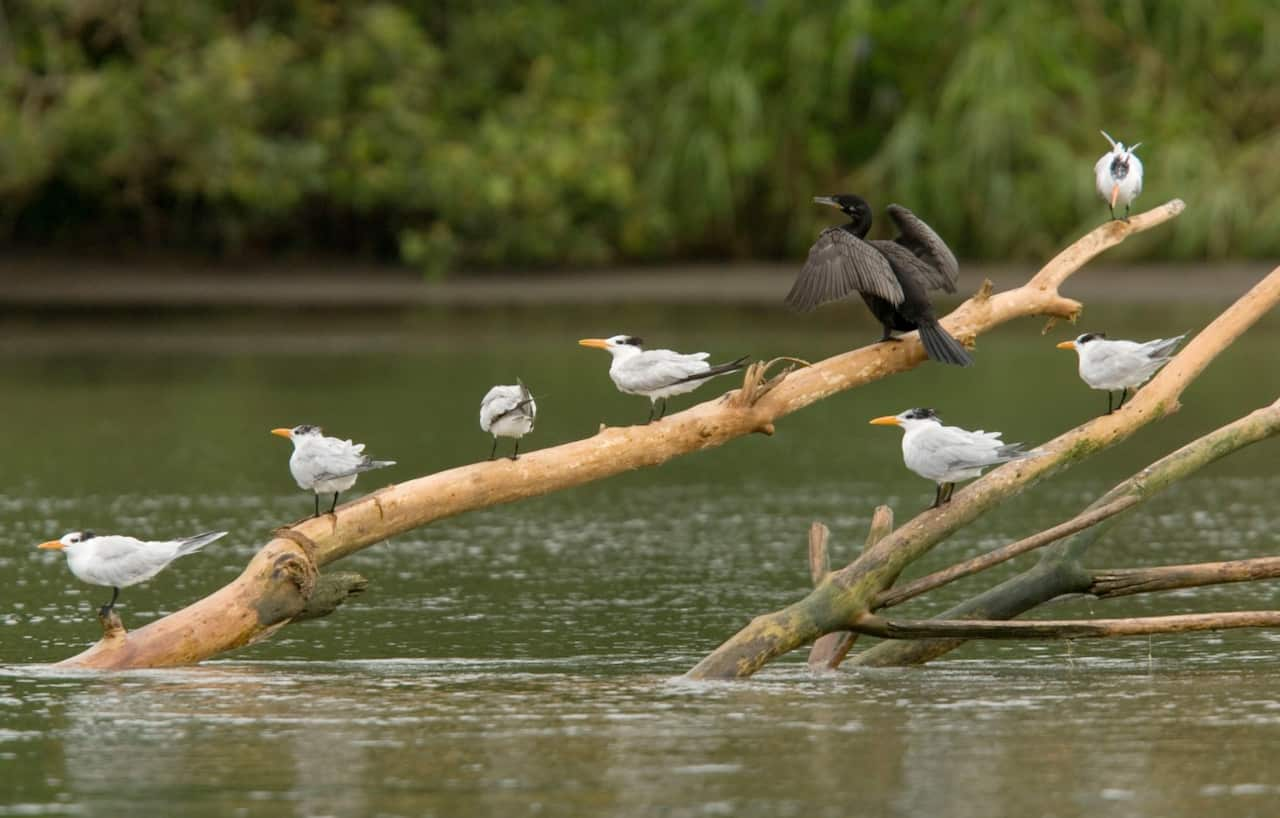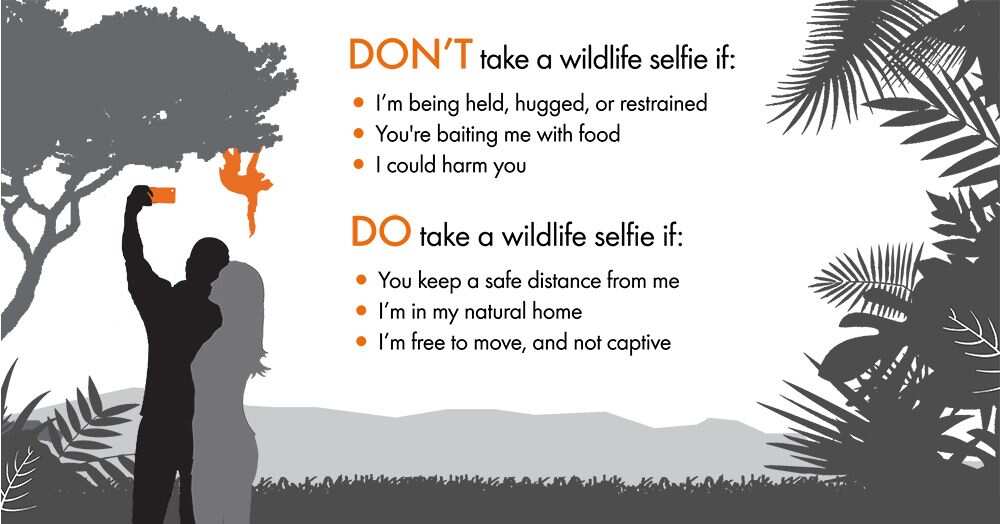Costa Rica has become the first country to launch a national campaign warning tourists against the “cruel and inappropriate” practice of selfie-taking with animals in the wild.
The Central American country, a pioneer in the region in terms of biodiversity conservation, is home to about 5 per cent of the planet's wild animal species, including monkeys, toucans and sloths, according to the World Wildlife Fund (WWF). Given this, the Ministry of Environment and Energy (MINAE) launched the #stopanimalselfies campaign in late October.
Given this, the Ministry of Environment and Energy (MINAE) launched the #stopanimalselfies campaign in late October.

Royal Terns and Neotropical Cormorant, perched on log in river estuary (Sterna maxima) in Costa Rica Source: AAP
In addition to raising public awareness of the adverse effects of this practice on the conservation of species, the campaign also seeks to protect tourists.
It recommends that tourists abide by the Wildlife Selfie Code, as laid out by World Animal Protection.

Source: World Animal Protection
"The direct contact with wild animals can represent a risk for people and generate stress and suffering to the fauna. Animals can also be carriers of diseases or spread pathogens transmitted by people, so it is necessary to maintain a prudent distance when observing them in their natural habitat or sanctuaries and respect their natural behaviours.”
As part of the campaign, Costa Rican authorities have placed stuffed animals at airports and tourist sites for visitors to take photographs with.
The latest push comes following a 2017 study by the World Animal Protection (WAP) which ranked Costa Rica seventh in the world in the number of inadequate photographs and selfies involving wild animals.
Costa Ricans were outraged in April when vision surfaced of a US tourist taking a selfie while hanging from the Tarcoles River bridge, above crocodile-infested waters.
Emily Rice, an Australian spokesperson from the People for the Ethical Treatment of Animals (PETA), said any contact between humans and wild animals “can be dangerous for both parties”.
“Animals exist for their own purposes, not as props for travel photos,” she told SBS Spanish.
“More and more, we hear stories of animals who have suffered and died as a consequence of naïve holidaymakers' efforts to get a novelty ‘selfie’ or are drugged and trained through intimidation to sit still or stay in one place for that ‘perfect picture’.
“Their claws and teeth may even be removed so that they can be handled, which still doesn't prevent people from getting hurt, attacked, or worse when attempting to get ‘up close and personal’ with them.
“Animals are not ours to use for entertainment, and PETA urges everyone to leave wildlife in peace – if you're lucky enough to come across wild animals, admire them from afar and don't interfere.”
